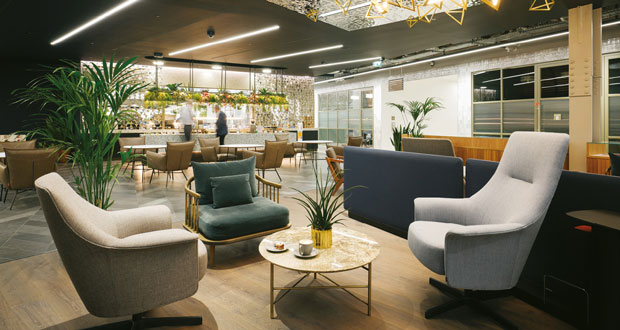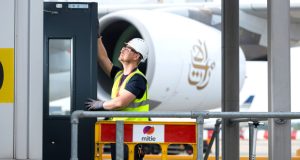When PwC reimagined its longstanding ‘Deal’ with employees in 2021, it marked a major step-change in its corporate and organisational behaviour. Piers Zangana explores the role of catering and FM in delivering a new employee value proposition
In 2021 PwC’s 22,000-strong workforce was presented with a new employee value proposition covering everything from learning and development to how its people make a positive societal difference. Although originally launched 10 years ago, the reimagined concept was built on the idea that its employees, clients and the firm, would foster a new two-way relationship with flexibility and trust at its core.
The ‘Deal’ was a framework largely designed to continue to evolve the firm’s employee value proposition and specifically in light of unprecedented global events to respond to, and to be on the front foot, of the changing way in which they work.
Sitting at the centre of the ‘Deal’ are four quadrants: ‘How you are empowered’, ‘How you grow’, ‘How you make a difference’, and ‘How you are valued’.
As part of the ‘Deal’ and ‘how you are empowered’, PwC employees can benefit from an ‘empowered working day’ – which gives them the freedom to decide how, when and where they work most effectively. So, for example, they can choose an earlier start and finish time, assuming it works for their teams and their clients.
Anna Groves, Senior Manager, PwC, and one of the team responsible for driving the implementation of the ‘Deal’ across the business, explains: “Our teams now have the flexibility to choose how, when and where they work. It has been a significant change in the way we run our business. At the same time, we launched ‘summer working hours’, the ability for our people to condense their hours over the summer months to work a 4.5 day week and to take an afternoon off towards the end of their working week. More recently we’ve launched a new international remote working policy, as well as flexible public holidays, and will continue to evolve the ‘Deal’.”
She adds: “Whilst there were plans in place to refresh the principles of the ‘Deal’ pre-pandemic, these were accelerated when we saw how quickly the world was changing before us.
“We carried out a consultation to understand what was important to people. One of the key trends to come out of this was this idea of empowered flexibility. Our people wanted more flexibility to work in a way that worked for them, and we wanted to empower them with a greater level of trust than we had before. We’d seen this work during the pandemic and wanted to offer more as we emerged from it.”
Despite the flexibility of the ‘Deal’ the new policy has some strong metrics behind it and there is an expectation that people will spend an average of 40-60 per cent of their time co-located with colleagues, either in its offices or at client sites. This has a clear impact on facilities.
THE WORKPLACE AND THE ‘DEAL’
As well as the vast number of employees across the UK, the company operates across 21 sites in the UK and Ireland.
Ben Noah, Head of Client Services, PwC, says: “Workplace services are essentially the facilitator of the deal.
“Our facilities have always played an important role in supporting the development of a workplace culture. The new ‘Deal’ meant we had to reimagine our offices to create spaces that support wellbeing, productivity and sense of belonging – while also creating more opportunities for teams to come together in a variety of different settings.”
He adds: “Like many employers, the office remains an important part of our hybrid offering and so we increased the number of collaborative spaces in our buildings, alongside the spaces we have for focused work. We know that having people in the office who are engaged and content will make them more productive.”
So much so that, PwC’s largest office outside London, Merchant Square in Belfast, has a dedicated wellbeing space that takes up half a floor and is a fusion of technology and interior design geared to maximise staff wellbeing.






